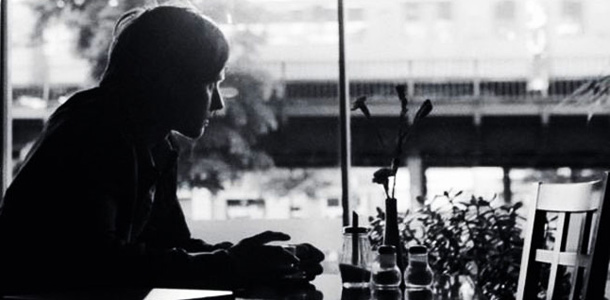Slacker Days: Gerster’s Debut Proves that Growing Up is Hardly Black and White
Niko Fischer (Tom Schilling) has been coasting for the past two years on his father’s money, a man that assumes the monthly allowance he gives his son is going towards law school. Except that Niko’s dad just found out that Niko hasn’t been in school for two whole years, and Niko’s still dead broke. So where’s all that money gone and what’s he been doing with his time? “I’ve been thinking,” he tells his dad. “About you, about me.” Vowing to cut his son adrift, Niko discovers he doesn’t have much left as far as a support system goes. We met him the morning after one of his latest hookups, another young woman throwing herself at his feet to be promptly rejected. Niko resorts to hanging with his friend Matze (Marc Hosemann), a wannabe actor, who drags Niko around while he scares up work on a movie set starring an actor friend of his in the lead, concerning a Nazi during World War II that falls in love with a Jewish woman.
Having both survived the war, it’s now the Nazi’s turn to be persecuted. Perhaps Niko is waiting for a similar cosmic turn of events. While eating with Matze, a specter from Niko’s past enters his life in the form of an old high school classmate, Julie (Friederike Kempter). She’s currently an employed actor in a local arthouse stage production and she’s thrilled to reconnect with Niko, who she readily admits was her high school crush, even though he had joined in taunting her as Roly Poly Julie with the other school kids. Julie’s now a ravishing, svelte, blonde, but seems to carry the inside scars of her past inside and not too far tucked away. Niko explores a possible reconnection with Julie, though this proves to be uncomfortable, and he finds himself connecting with a lonely old man in bar that collapses and requires medical attention.
There’s an unshakeable meandering to the proceedings of Oh Boy that, of course, perfectly reflects the stalled nature of Niko’s seemingly meaningless existence. Unfortunately, this hardly makes for compelling cinema. True, one may recall something like Woody Allen’s Manhattan (1978) with the beautiful black and white cinematography by Philipp Kirasmer, but this is hardly the paean to Berlin that Allen’s film is to his titular city. We even get some references to Taxi Driver (1974), which Matze playfully quotes, and Gerster is obviously as well versed in cinema as the characters he wrote.
The most alluring aspect of the film has to be the dysfunctional Julie, in an alternately funny yet melancholy performance from Kempter, but Gerster utilizes her little beyond just another detail revolving around the dead center that is his protagonist. There’s nothing wrong with Schilling’s performance here (an actor best known for his role in 2008’s The Baader Meinhof Complex), but his character seems a bit underdeveloped. We never quite know why Niko is the way he is, why the responsibilities of life and relationships seem so difficult for him. But even at the slight running time of 83 minutes, watching Niko and his meandering struggles is an exercise indeed.
Reviewed on November 07 at the 2012 AFI Film Festival – BREAKTHROUGH Programme.
83 Min
